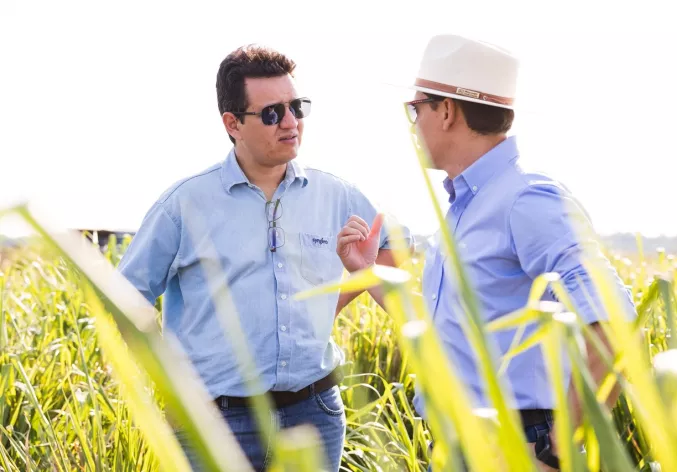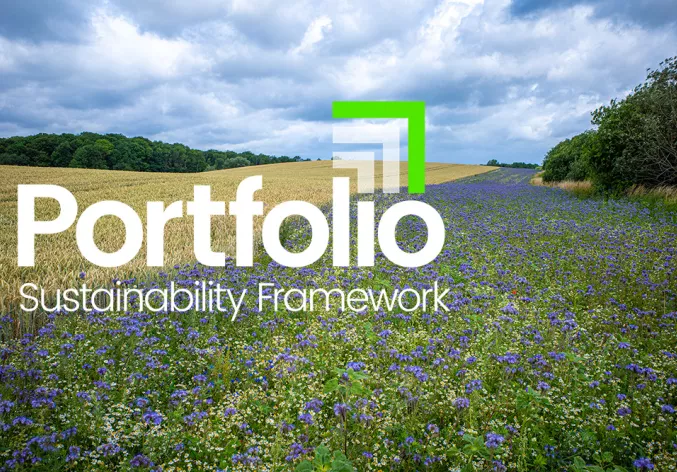
Syngenta has received ‘World Premiere’ recognition at the 2025 Agritechnica Innovation Awards for two new digital services– Cropwise Operations AI Machine Manager and Cropwise Operations AI Machine Pool.
A VITAL TIME FOR AGRICULTURE
Farmers are on the front line of climate change, needing to produce enough food to feed 8 billion people every day as the effects of global warming result in more extreme weather patterns, pest pressures and increasing crop failures.
With the global population on track to reach 9.7 billion by 2050, farmers need to grow more food while reducing their impact on the environment and safeguarding natural resources.
The food that feeds the world can also help to improve it. Working alongside farmers, we believe agriculture can feed people, while becoming a climate solution and regenerating soil and nature.
More than a decade ago, Syngenta Group was one of the first companies in the industry to launch a plan that served as the organization’s sustainability compass.
Working with stakeholders, we have identified areas where we can make a meaningful difference while capitalizing on opportunities, putting sustainability at the core of our business.
Syngenta Group believes setting clear targets that guide innovation will integrate sustainability throughout the business.
To realize this ambition, we have set four sustainability priorities, each with a clear set of targets.
Turning priorities into action
Drawing from three strong levers to put our sustainability priorities into action, Syngenta Group will embark on this new phase of its sustainability journey.

Leveraging the power of innovation
Innovation will be central to advancing sustainable agriculture and achieving our sustainability priorities.
Syngenta Group’s innovation capabilities have been built on the back of research and development: some 6,500 employees work in R&D, in more than 150 R&D hubs worldwide.
We will continue working towards the investment target of USD 2 billion in breakthrough sustainable and regenerative innovation by 2025.
The Group will direct resources toward products, services, programs, partnerships, and capital expenditures that offer a clearly differentiated sustainability benefit.

Working in partnership with others
To address future challenges, collaboration with all stakeholders is required, including farmers, supply and food value chains, academia, and local communities.
Syngenta Group has over 300 sustainability projects and partnerships around the world that demonstrate this commitment.
Syngenta Group’s long-time conservation collaborator, The Nature Conservancy (TNC), has provided insights to inform the new sustainability commitments.

Establishing a strong tool to capture progress on increased sustainability performance of the portfolio.
As an integral part of putting sustainability at the core of the business strategy, Syngenta Group has developed a Portfolio Sustainability Framework (PSF) to provide increased transparency to external stakeholders on the ongoing sustainability profile of the portfolio and capture internal progress on portfolio sustainability.
Implementation of the PSF started in 2024 with the Syngenta Crop Protection business unit. This was complemented with the addition of Syngenta Seeds Field Crops in 2025. The PSF covers 94% of total Syngenta AG sales, as the remainder is from the Syngenta Vegetable Seeds & Flowers business, currently not in scope for the PSF.
Adaptation and implementation across further business units is planned going forward.
Stay informed
Receive Syngenta Group press releases directly per email
